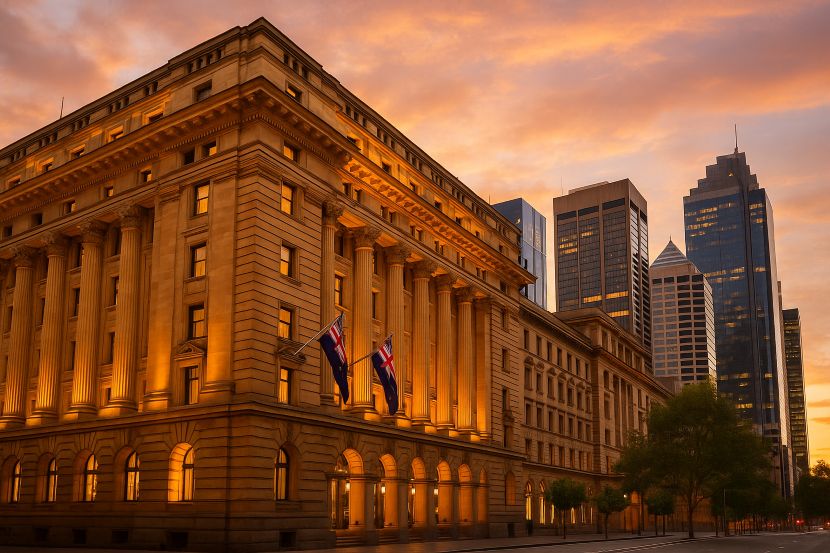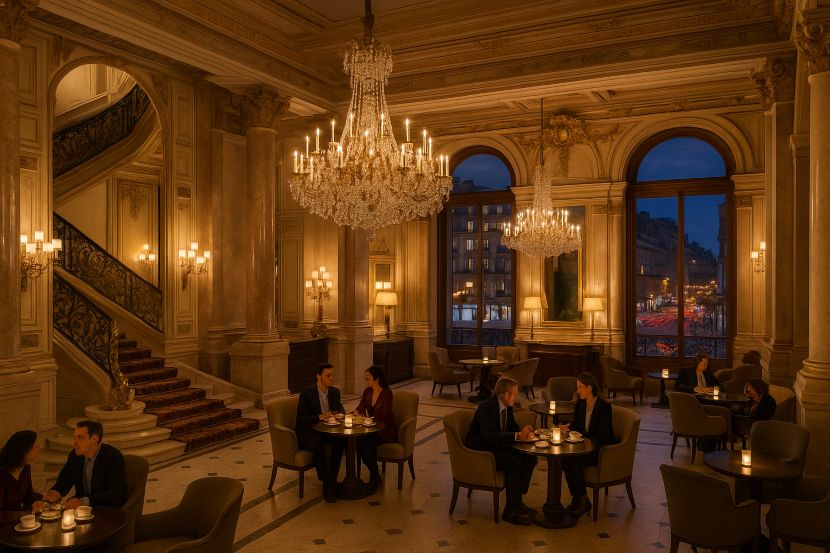2025 Historic Hotels Worldwide Awards: Heritage Triumphs in Seattle

The world of travel took a nostalgic yet forward-looking turn in Seattle this October as the 2025 Historic Hotels Worldwide Annual Awards of Excellence unfolded at the Fairmont Olympic Hotel. The gala was more than a night of trophies and applause; it was a powerful statement about the value of history in modern hospitality. The Fairmont Olympic, itself a 1924 landmark, proved a fitting host for an event that celebrated hotels which have carried the stories of their nations across centuries.
Historic Hotels Worldwide represents a collection of over 320 distinguished properties across 44 countries, each with a deep connection to its cultural roots. This year’s winners were chosen from more than 200 nominations, each competing not only for excellence in service but also for how well they preserved heritage while staying relevant in today’s world. The judges considered leadership, authenticity, environmental care, and community engagement. The outcome revealed a diverse and inspiring group of hotels that have turned history into experience for modern travellers.
In Australia, The Fullerton Hotel Sydney stood out as the New Member of the Year. Once home to the city’s General Post Office, the 1874 building was transformed into a luxury hotel without losing its original charm. Its sandstone façade remains one of Sydney’s finest examples of Victorian architecture, while its interior blends past and present with quiet sophistication. The award recognised not just the craftsmanship of restoration but also the hotel’s role in reconnecting Australians with their architectural heritage. The project showed that adaptive reuse can breathe new life into old spaces while retaining cultural meaning.
On the opposite side of the world, in Italy, the Grand Hotel Tremezzo was honoured for its mastery of digital storytelling, taking home the award for Best Social Media of a Historic Hotel. Built in 1910 on the shores of Lake Como, the property has turned social media into a digital extension of its history. Its online presence does more than market rooms and views; it shares pieces of Italian tradition, from local food to art to the rhythm of lake life. In doing so, the hotel has proven that heritage can thrive in the virtual world. Its posts and imagery evoke the same charm as its marble terraces and floral balconies, making history feel alive to a global audience.
In the Caribbean, Jamaica’s Half Moon resort emerged as the Sustainability Champion. Founded in 1954 by a group of families who fell in love with the island, the property has spent decades leading the region in environmental awareness. The resort’s green initiatives span from energy conservation to reef protection, ensuring that luxury never comes at the cost of nature. What makes Half Moon stand out is its commitment to people as much as the planet. Its partnerships with local farmers, schools, and artisans support the surrounding community while deepening the resort’s connection to Jamaica’s culture. The recognition signalled a shift in how sustainability is perceived — not as a trend but as a core responsibility for any historic property that aims to endure.
In Norway, the spirit of family and tradition shone through the story of Walaker Hotell, where the Nitter-Walaker family received the title of Legendary Family Historic Hoteliers of the Year. The hotel, established in 1640 in the village of Solvorn, has remained in the same family for nine generations. Its story is one of love, patience, and continuity. Set beside the Lusterfjord, the property offers a blend of personal warmth and historical authenticity that cannot be replicated. The family’s stewardship reflects a belief that heritage is not a possession but a living trust passed from one generation to the next.
In England, Raffles London at The OWO was recognised as the Best City Centre Historic Hotel. The property, once the Old War Office where Winston Churchill worked, reopened as a luxury hotel after extensive restoration. Its transformation symbolises how historic preservation can be a force of renewal in urban spaces. The building’s sweeping marble corridors and ornate ceilings now welcome guests from around the world, turning a former government stronghold into a place of peace and hospitality. Its success demonstrates how old architecture can be reimagined to meet modern needs without erasing the past.
Another Norwegian property, Losby Gods, won the title of Best Historic Resort. This estate, dating back to 1744, was once the private domain of nobility and now operates as a quiet retreat surrounded by forests and lakes. Its preservation has kept alive a chapter of Norway’s aristocratic history while opening it to the public in a gentle way. The hotel’s focus on local cuisine, relaxation, and cultural storytelling turns heritage into experience. It reminds the world that preserving a place can also mean preserving the rhythm of its landscape.
In France, the Hilton Paris Opera took home the award for Best Historic Hotel in Europe. Since 1889, the hotel has witnessed Paris’s cultural evolution. Built during the Belle Époque, its grand staircase, marble pillars, and chandeliers continue to charm travellers seeking a touch of timelessness. Through wars, political changes, and the rise of modern tourism, it has remained an emblem of Parisian grace and resilience. Its recognition reaffirmed that elegance rooted in history never fades.

Asia’s spotlight fell on Japan’s Hotel New Grand, a Yokohama institution that won Best Historic Hotel in the Asia/Pacific region. Founded in 1927, it became a refuge for General Douglas MacArthur during World War II and later a symbol of Japan’s post-war recovery. Its blend of Art Deco design and Japanese hospitality tells a story of renewal and pride. The hotel also introduced famous dishes such as Spaghetti Napolitan and Shrimp Doria to Japanese dining. Its award celebrated both culinary innovation and cultural significance.
Across the Atlantic, Canada celebrated two major wins. The Fairmont Empress in Victoria, British Columbia, was named Best Historic Hotel in the Americas. Opened in 1908, the hotel’s ivy-covered walls and Edwardian design have become symbols of Canadian hospitality. Its tradition of afternoon tea is a cherished ritual. A careful restoration balanced historic preservation with modern comfort, turning it into a bridge between Canada’s past and present. Its connection to the country’s railway history makes it more than a hotel — it is a cultural landmark.
Another Canadian achievement came through Garrett Turta, general manager of the Fairmont Jasper Park Lodge, who received the title of Historic Hotelier of the Year. Built in 1922, the lodge sits among Alberta’s mountain lakes, offering rustic luxury at its best. Under Turta’s leadership, the hotel enhanced its sustainability programs and strengthened ties with its local community. His work proved that heritage and innovation can flourish together. His award highlighted how visionary leadership keeps historic hotels relevant in a fast-changing world.
These awards carried meaning far beyond ceremony. They reflected a global movement in tourism and heritage preservation that views history as an asset rather than an obstacle. To qualify, each property must be at least 75 years old and hold cultural or architectural importance. Yet the real measure of greatness lies in how these hotels adapt and evolve. They are not frozen in time; they are living institutions that continue to grow without losing their identity.
The celebration in Seattle stood as a symbol of balance between innovation and tradition. The Fairmont Olympic Hotel, nearly a century old, proved that preservation pays off. Its ballroom, filled with representatives from across the world, became a meeting place for past and future. Seattle’s reputation for creativity made it an ideal setting for an event that reminded everyone that progress and preservation can coexist.
Historic Hotels Worldwide plays a vital role in sustaining this balance. Its mission extends beyond recognition; it seeks to educate and inspire. By supporting owners who invest in restoration, the organisation encourages them to treat their buildings as cultural treasures rather than mere assets. The 2025 ceremony demonstrated that saving history is a shared duty, linking architects, hoteliers, and communities in a common goal.
The awards also revealed a new direction in traveller expectations. Modern guests are not simply chasing comfort; they are chasing connection and authenticity. They want to stay in rooms where time has left a mark, to walk through halls that once echoed with real stories. For many winners, storytelling has become a core part of hospitality. Whether through personal tours, curated art, or online engagement, these hotels turn service into education and emotion.
This shift carries cultural and economic weight. At a time when urban expansion threatens old architecture, these awards send a message of hope. They show that economic growth and preservation are not enemies. Properties such as Raffles London at The OWO and The Fullerton Hotel Sydney illustrate how adaptive reuse can generate jobs, attract visitors, and revive city centres. Their achievements may encourage planners to choose restoration over replacement.
From a research and cultural perspective, the awards highlight the relationship between cultural memory and tourism economics. Each winning property contributes to what can be seen as living heritage — the art of keeping symbols of history alive and useful. This approach supports not only the hospitality industry but also education, sustainability, and local economies. Hotels such as Half Moon and Fairmont Jasper Park Lodge serve as examples of how environmental stewardship and heritage care can thrive side by side.

At its core, the 2025 ceremony in Seattle reminded the world that the past is not a weight but a foundation. The hotels honoured this year have mastered the art of turning history into advantage. They offer not just comfort but emotional connection, not just buildings but living stories. Their success signals a global shift in travel — from consumption to meaning, from novelty to narrative.
As the lights dimmed in the grand ballroom of the Fairmont Olympic, applause filled the air not only for the winners but for the message they embodied. These hotels have survived wars, revolutions, and decades of transformation. Their endurance proves that true luxury lies in what lasts. The 2025 Historic Hotels Worldwide Awards of Excellence did more than celebrate achievement; they reminded the world that the most powerful future is always built upon the strength of the past.The 2025 Historic Hotels Worldwide Awards of Excellence: Preserving the Past, Defining the Future